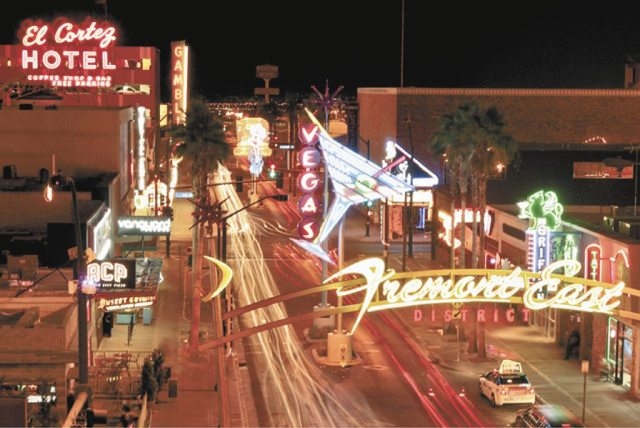Brakes put on exemption for downtown trolley plan
When the Downtown Project’s Shift car and bicycle sharing program is launched soon, managers of the program fear there may be some high-demand periods when they won’t be able to provide subscribers vehicles for short jaunts around town.
The company’s solution: start a downtown trolley system free to Shift subscribers to get around downtown when there’s high demand.
But on Tuesday, the Nevada Transportation Authority, at least temporarily, put the brakes on the proposed trolley plan by tabling action on Shift’s request for an exemption from transportation regulations for the operation of free shuttle services.
Commissioner Keith Sakelhide said although Shift’s proposed trolley service would be free to subscribing members, it wouldn’t qualify as a free service since it would be used exclusively by Shift subscribers who must pay a fee to use vehicles in the company’s fleet.
Shift is a planned vehicle sharing program that would be centered downtown. Backed by Tony Hsieh’s Downtown Project, Shift has acquired 100 Tesla Model S electric cars and a smaller complement of Smart Electric Cars and Chevy Volts for use by subscribers.
Subscribers would pay a monthly fee that covers vehicle use and insurance costs. Shift would be the second vehicle-sharing program to begin operations in Southern Nevada. Zipcar, a subsidiary of the Avis Budget Group, began operations at the University of Nevada, Las Vegas, and at McCarran International Airport earlier this month.
Shift is expected to begin beta testing of its system by October.
But one of the concerns the company has identified is high demand during peak periods — such as lunch hour at Hsieh’s Zappos.com headquarters.
Zach Ware, founder and CEO of Shift, said by email that his company has been working with the Transportation Authority for several months and that the agency the regulates buses and limousines in the state recommended that Shift seek an exemption since it wouldn’t charge a fee per use and wouldn’t operate on a fixed route or schedule.
In Tuesday’s meeting, it was clear that Chairman Andrew MacKay favored granting the exemption, but Sakelhide and Commissioner George Assad were opposed. Rather than face defeat in a vote, MacKay asked that the matter be tabled so that Shift and the authority’s staff could meet and come up with another solution. The matter is expected to be on the authority’s Oct. 30 meeting agenda.
Ware did not say whether the company had acquired a trolley vehicle, but added, “We’ve been working on a trolley vehicle for some time. Our first vehicle will be able to seat more than 10 people.”
The company did not disclose how many vehicles it intends to get or how much they would cost.
Ware said trolley routes would be flexible based on demand.
“Fixed route systems, like bus systems, are often less efficient,” Ware said in an email. “Our plans for the trolley include several routes that change as the nature of demand changes. Think about the different way people move in the morning, around lunch, after work and at night. We can adjust the routes in real time based on demand.”
Sakelhide said another solution would be for Shift to simply apply for licensing as a regulated common carrier. He said the licensure application fee is minimal, but the company also would be responsible for having shuttle vehicles inspected, drivers tested and proof of insurance as is the case for all licensed carriers.
Contact reporter Richard N. Velotta at rvelotta@reviewjournal.com or 702-477-3893. Follow @RickVelotta on Twitter.

















